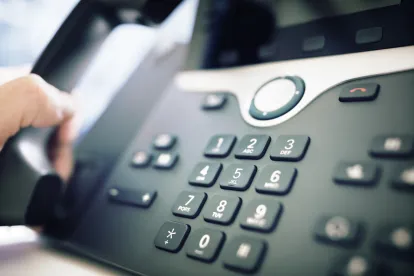As part of its efforts to combat illegal robocalls, the FCC signed the “Mutual Assistance in the Enforcement of Laws on Certain Unlawful Communications” Memorandum of Understanding (“MOU”) with the Australian Communications and Media Authority (“ACMA”). In the MOU the parties agree to “work together to develop and coordinate a global approach to addressing unlawful robocalls or robotexts, and the unlawful use of inaccurate caller ID information or ‘spoofing.’” Specifically, the MOU:
“[S]ets forth the Participants’ intent with regard to mutual assistance and the exchange of information for the purpose of enforcing and securing compliance with Covered Violations.” The term Covered Violations is defined to include “practices that would, based on available information, violate or likely violate the Applicable Laws of one Participant’s country and that are substantially similar to practices prohibited by any provision of the Applicable Law of the other Participant’s country.”
Recognizing that “[r]obocall scams are a global problem that require global commitment and cooperation,” Acting FCC Chairwoman Jessica Rosenworcel said that, “[w]ith these irritating calls coming from near and far, we need international cooperation, information sharing, and enforcement to address this matter. I want to thank our Australian friends for working with us on this agreement. By joining together we can help get these scammers off of our networks and protect consumers and businesses around the world.” Her Australian counterpart, ACMA Chair Nerida O’Loughlin, agreed, noting that unlawful robocalls have “significant social and economic impact on consumers.”
Commission to Establish Online Robocall and Spoofing Information Portal
The Federal Communications Commission (“FCC”) plans to consider a measure that would create an online portal for private entities to submit information about suspected robocalling and caller ID spoofing violations directly to the Commission’s Enforcement Bureau. On May 27, the Commission released a draft of a Report and Order that, if adopted, would, in addition to establishing the portal, request but not require that submissions to the portal provide certain information about both the reporting entity and the alleged robocaller such as the name, contact information of the reporting entity, and information about the alleged violation, such as the date and time, or caller ID information displayed. The Report and Order would adopt rules that define “private entities” as entities other than an individual natural person or public entity (e.g., a federal, state or local government).
The Commission’s Report and Order would also seek to make clear that this new online portal would not take the place of the long-standing informal consumer complaint process. Rather, this portal would be exclusively for private entities to report concerns about alleged robocalls and spoofing.
The Commission’s Enforcement Bureau would be responsible for implementing the Report and Order following approval from the Office of Management and Budget. In addition, the Report and Order would direct the Enforcement Bureau to work closely with the Consumer and Governmental Affairs Bureau to share any submissions incorrectly submitted to the private entity portal by individuals. The Commission will consider the Report and Order at its June 17 Open Meeting.
Congress Seeks to Increase Penalties for Illegal Robocalls
The Deter Obnoxious, Nefarious and Outrageous Telephone (DO NOT) Call Act (S. 1913) seeks to impose strict new penalties for violations of the Telephone Consumer Protection Act (TCPA). The DO NOT Call Act, introduced by Senator Catherine Cortez Masto (D-NV), would amend the TCPA to impose a prison term of up to one year on people who “willfully and knowingly” violate the robocalling provisions of the TCPA. The bill also contains provisions for an enhanced penalty of up to 3 years in prison for “aggravated” violations, which include violations where a person has previously been convicted under the Act; when a violation involves initiating more than 100,000 calls in a 24-hour period, 1 million calls in a 30-day period, or 10 million calls over one year; when a person makes the illegal calls with the intent to use them in furtherance of a felony or conspiracy; or when the calls cause losses to one or more persons of at least $5,000 aggregated over a one-year period. The bill also seeks to double the maximum TCPA penalties for falsifying caller ID information (“spoofing”) from $10,000 to $20,000 per violation.
In introducing the bill, Sen. Cortez Masto noted that although fraudulent or harassing robocalls are outlawed under the TCPA, they have still managed to surge nationwide for some time, and are frequently used to scam and harm the public, including vulnerable seniors. As Sen. Cortez explained, “[n]ew technology is allowing robocallers to place more calls than ever, and [this] legislation would toughen the consequences for those who profit while preying on vulnerable [Americans]. I’ll keep working in the Senate to protect Americans from deceptive practices like [these].”





 />i
/>i

